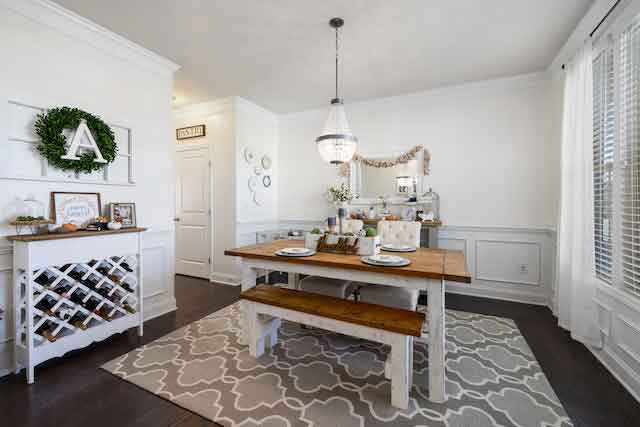Are you considering buying a fixer-upper? If so, you’re not alone. The allure of transforming a neglected property into your dream home or a profitable investment has captured the imagination of many prospective homeowners. While the prospect of a fixer-upper may seem thrilling, it’s essential to weigh the pros and cons before taking the plunge. In this blog post, we’ll explore the advantages and disadvantages of buying a fixer-upper to help you make an informed decision.
The Pros:
- Cost Savings: One of the most significant advantages of buying a fixer-upper is the potential for cost savings. Generally, these properties are priced lower than move-in-ready homes, allowing you to purchase in a neighborhood that may have otherwise been out of your budget.
- Customization: With a fixer-upper, you have the opportunity to make the space your own. You can choose the layout, materials, and design elements to suit your preferences, creating a truly unique living space that reflects your personality.
- Investment Potential: Fixer-uppers often have the potential for significant returns on investment. By making strategic renovations and improvements, you can increase the property’s value, providing you with a source of wealth if you decide to sell in the future.
- Learning Experience: Owning a fixer-upper is like attending a crash course in home improvement. You’ll acquire valuable skills and knowledge as you tackle various projects, making you a more capable homeowner in the long run.
- Historic Charm: Many fixer-uppers are older homes with unique architectural features and historical significance. Restoring and preserving these elements can be a gratifying experience and add character to your property.
The Cons:
- Hidden Costs: While fixer-uppers may have lower initial purchase prices, they often come with hidden costs. The renovation expenses can quickly add up, and unforeseen issues may arise during the renovation process, causing budget overruns.
- Time-Consuming: Renovating a fixer-upper can be a time-consuming endeavor. If you’re on a tight schedule or need a place to live immediately, this may not be the best choice for you. Delays in construction and unexpected problems can further extend the timeline.
- Stress and Uncertainty: The process of renovating a fixer-upper can be stressful, especially if you’re new to home improvement projects. Dealing with contractors, making design decisions, and managing the renovation process can be overwhelming.
- Resale Value Uncertainty: While fixer-uppers have the potential for increased value, there’s no guarantee that you’ll recoup your investment when you decide to sell. The real estate market is unpredictable, and your property’s worth depends on various factors.
- Quality of Workmanship: If you’re not experienced in home improvement, there’s a risk of subpar workmanship during the renovation. Cutting corners to save money can result in long-term issues that may not be immediately apparent.
Tips for Successful Fixer-Upper Ownership:
Now that you’re aware of the pros and cons of buying a fixer-upper, here are some tips to ensure a successful experience:
- Do Your Research: Thoroughly research the property, the neighborhood, and potential renovation costs before making a decision.
- Create a Realistic Budget: Account for unexpected expenses and set a realistic budget for your renovations.
- Seek Professional Help: Consult with experts, such as contractors, inspectors, and real estate agents, to guide you through the process.
- Prioritize Safety: Focus on essential repairs, like electrical, plumbing, and structural issues, before cosmetic upgrades.
- Have Patience: Be prepared for unexpected delays and setbacks, and remain patient throughout the renovation process.
Buying a fixer-upper is not for the faint of heart, but for those willing to put in the time, effort, and investment, it can be a highly rewarding experience. The decision to purchase a fixer-upper depends on your personal goals, financial situation, and willingness to take on the challenges and uncertainties that come with it. By weighing the pros and cons and following the tips provided, you can make an informed choice and turn your fixer-upper dreams into reality.

